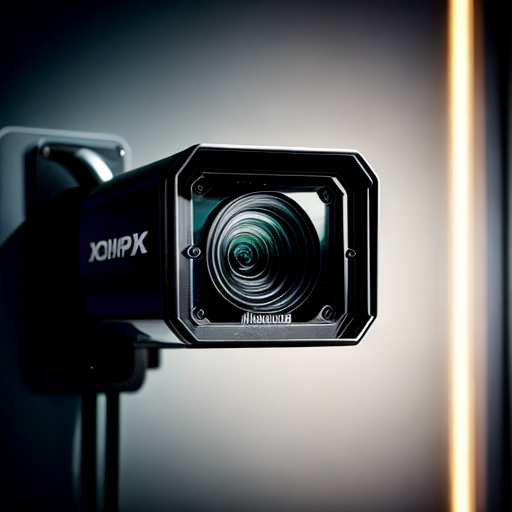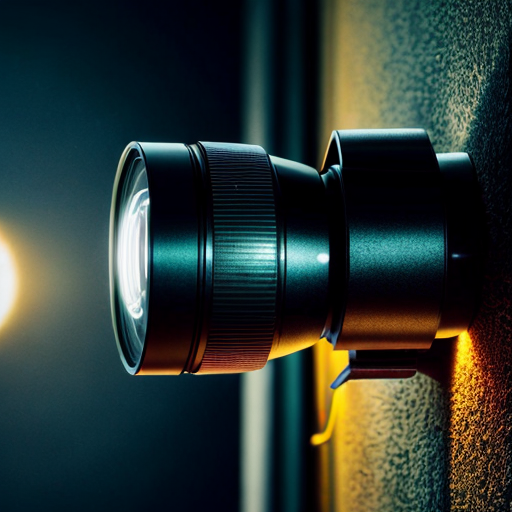Understanding the Basics: Powering Home Security Cameras
Alright, folks, let's dive into the fascinating world of powering home security cameras! Now, we all know that these little guardians of our homes are like the Batman of the tech world, constantly watching over us. But have you ever wondered how they get their power? Well, it's not like they have a secret stash of Duracell batteries hidden in their tiny bodies. Nope, most home security cameras are powered through good old-fashioned electricity. Yep, just like your toaster or that questionable dancing Santa Claus decoration you bring out every Christmas. So, whether it's through a direct electrical connection or a fancy-schmancy power adapter, these cameras are always ready to capture any shenanigans happening around your humble abode. Just remember, folks, with great power comes great responsibility, so keep those cameras juiced up and keep the bad guys at bay!
Wired Solutions: Exploring the Different Power Options for Home Security Cameras
An interesting fact about how home security cameras are powered is that many modern cameras utilize Power over Ethernet (PoE) technology. This means that the cameras receive both power and data through a single Ethernet cable, eliminating the need for separate power cables. PoE technology not only simplifies installation but also allows for greater flexibility in camera placement, as cameras can be installed in locations without easy access to power outlets. Additionally, PoE cameras can be remotely powered and controlled, making them more efficient and convenient for homeowners.
Alright, my fellow security enthusiasts, let's talk about the wired solutions for powering our beloved home security cameras! Now, when it comes to keeping these watchful eyes up and running, we have a few options. First up, we have good old-fashioned electrical wiring. Yep, just like the veins of our homes, these cameras can tap into the power grid and stay energized 24/7. But wait, there's more! For those who like to get a little fancy, we have power over Ethernet (PoE) technology. This nifty innovation allows us to not only transmit data but also power our cameras through a single Ethernet cable. It's like killing two birds with one stone, but in a much more humane and tech-savvy way. So, whether you prefer the traditional route or want to embrace the wonders of PoE, rest assured that your home security cameras will always have the power they need to keep those pesky intruders at bay!
Wireless Alternatives: Unveiling the Battery-Powered and Solar-Powered Options

Alright, my tech-savvy friends, let's explore the wireless alternatives when it comes to powering our trusty home security cameras. Say goodbye to messy wires and hello to the future of surveillance! First up, we have the battery-powered option. These cameras are like the rebels of the security world, untethered and free to roam wherever they're needed. With long-lasting batteries, they can keep a watchful eye on your home without needing a constant power source. Just make sure to keep those batteries charged, or you might end up with a blind spot right when you need it the most!
But wait, there's more! For those who want to take their eco-friendly game to the next level, we have the solar-powered cameras. These little marvels harness the power of the sun to keep themselves running smoothly. With solar panels built right into their design, they soak up those rays during the day and use that energy to power their surveillance duties at night. It's like having a tiny, self-sufficient sun-powered security guard stationed outside your home. Just make sure to place them in a spot with plenty of sunlight, or you might end up with a camera that's more like a sleepy security guard on a cloudy day.
Now, I know what you're thinking - what about those cloudy days or long winter nights? Well, fear not, my friends, because most battery-powered and solar-powered cameras come equipped with backup options. They can either switch to battery power when the sun is hiding or even connect to your home's electrical grid as a last resort. So, rain or shine, day or night, these wireless wonders have got you covered.
In conclusion, whether you opt for the rebellious battery-powered cameras or embrace the eco-friendly solar-powered ones, wireless alternatives are changing the game when it comes to powering our home security cameras. So, say goodbye to tangled wires and hello to a more flexible and sustainable way of keeping an eye on your castle. Just remember to keep those batteries charged or let the sun do its magic, and you'll have peace of mind knowing that your home is always under the watchful eye of these wireless sentinels.
Making the Right Choice: Factors to Consider When Selecting the Power Source for Your Home Security Cameras
Fun fact: Did you know that some home security cameras are powered by solar energy? These innovative cameras use built-in solar panels to harness the power of the sun, allowing them to operate without the need for traditional electrical wiring or batteries. Not only does this make them eco-friendly, but it also ensures uninterrupted surveillance even during power outages. So, next time you spot a security camera, remember that it might be silently powered by the sun!
When it comes to selecting the power source for your home security cameras, there are a few factors to consider. First and foremost, think about your specific needs and preferences. Are you someone who wants the convenience of a wired connection, or do you prefer the flexibility of a wireless option? Next, take into account the location of your cameras. If they're placed in areas with easy access to electrical outlets, a wired solution might be the way to go. On the other hand, if you're looking to install cameras in more remote or hard-to-reach spots, battery-powered or solar-powered options could be a better fit. Lastly, consider the climate and weather conditions in your area. If you live in a place with frequent power outages or limited sunlight, having a backup power source becomes crucial. So, take your time, weigh the pros and cons, and make the right choice that suits your needs and ensures the uninterrupted surveillance of your home sweet home.

